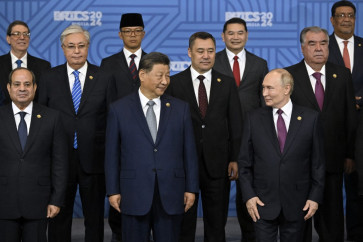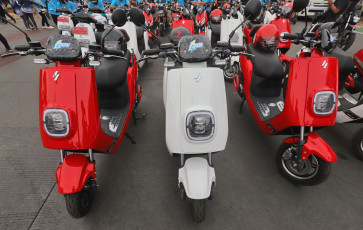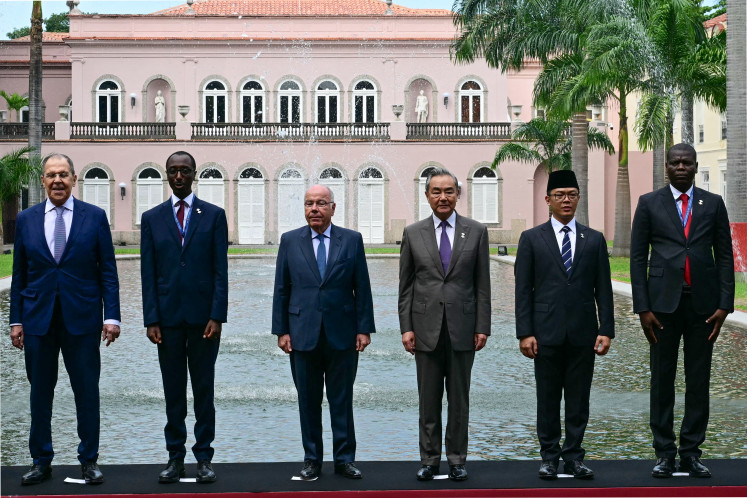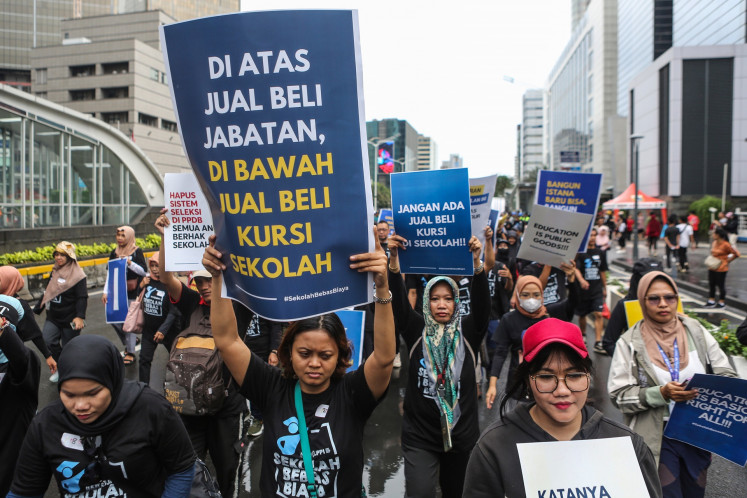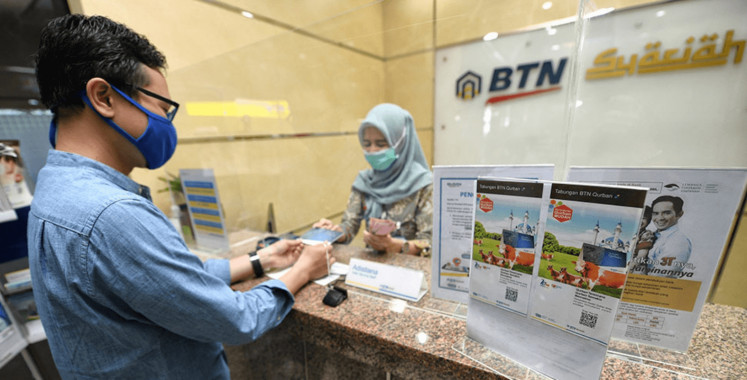ASEAN-Russia partnership has long way to go: Expert
As the latest country to become an ASEAN strategic partner, Russia still has a long way to go before it can achieve substantial returns on its now two-year relationship given the country’s ambivalence toward the region, a visiting Russian international relations expert has said
Change text size
Gift Premium Articles
to Anyone

A
s the latest country to become an ASEAN strategic partner, Russia still has a long way to go before it can achieve substantial returns on its now two-year relationship given the country’s ambivalence toward the region, a visiting Russian international relations expert has said.
At the 3rd ASEAN-Russia Summit in 2018, Russian President Vladimir Putin and the leaders of ASEAN met in Singapore to commemmorate the historic decision to elevate the ASEAN-Russia dialogue partnership to the level of a strategic partnership.
The idea was first introduced in 2016 when Russia and ASEAN celebrated 20 years of partnership, said Victor Sumsky, the director of the ASEAN Center at the Moscow State Institute of International Relations.
“It was agreed that they should be moving towards the stage where they could become a ‘strategic partnership’, but it would take some time. I think we were under the impression that it would take five to 10 years, but we got there in 2018,” he said in a discussion hosted by the Foreign Policy Community of Indonesia on Wednesday.
The “strategic partnership” moniker is awarded based on an ASEAN consensus with partner countries that have worked very closely and efficiently with the bloc, covering a gamut of undertakings that are deemed beneficial for both sides.
This is distinct from a conventional international relations perspective, in which a strategic partnership implies close cooperation in the security and defense spheres, experts have said.
In an op-ed he wrote in 2018, ASEAN journalist Kavi Chongkittavorn intimated that it “pained ASEAN greatly” not to upgrade the partnership with Russia in 2015 due to the lack of support among members. “Moscow [did not pay] enough attention to the grouping despite saying the right things officially,” Kavi said.
One of the reasons why ASEAN and Russia sped up the process was because they believed it would be good to have such an arrangement amid global pressures and challenges. Another reason was the receptive role that Singapore played as ASEAN chair at the time, Sumsky said.
Under the strategic partnership status, Russia and ASEAN have focused on cooperation in the areas of science and technology, energy, connectivity, information and communications technology, education, health, trade and investments and in combating transnational crime and drug trafficking, according to an entry on the ASEAN website.
The two partners also established the ASEAN-Russia Dialogue Partnership Financial Fund to help with projects and fund cooperation initiatives.
In spite of all of this, Sumsky said there had not been any stand-out results from the new partnership status.
“ASEAN and Russia still have a long way to go to establish a relationship of substance, but [they need to] think again about the opportunities that have opened,” he said. The scholar believed the partners might need to focus more on areas such as infrastructure, energy and transportation.
Despite the optimistic outlook, Sumsky said Russia still hesitated when it came to addressing the emerging Indo-Pacific geopolitical construct, which it considers “Trump’s child”, meant to contain the rise of China.
He said such a system would only support the interests of the United States and its key allies.
“The Indo-Pacific is important for the obvious reason, but the composition — which is basically American allies plus India — is telling,” Sumsky said.
Russian Foreign Minister Sergey Lavrov expressed similar sentiments when he was in India in January.
"Why do you need to call Asia-Pacific, Indo-Pacific? The answer is evident — to exclude China. Terminology should be unifying, not divisive," Lavrov said as quoted by The Straits Times.
The US says the Indo-Pacific engagement framework supports sovereignty, transparency, good governance and rules-based order, among other things. By using the term, the US is promoting the idea that it is a region that stretches far beyond China's backyard and the tiger economies of East Asia and which includes the Indian Ocean.
Despite being popularized by the US, ASEAN has responded to the idea by coming up with its own approach, through the adoption of the ASEAN Outlook on Indo-Pacific — outlining the group’s shared stance amid tense US-China rivalry.
Foreign Minister Retno LP Marsudi, who lobbied for the outlook to be adopted regionally, has said the concept underscored “an open, transparent and inclusive regional architecture based on international law”, which, unlike other schemes, does not shy away from embracing China.
The Russians, however, remain unconvinced despite ASEAN’s call for a more inclusive regional order, Sumsky said.
“You cannot be part of something that is not designed for you,” he noted.


